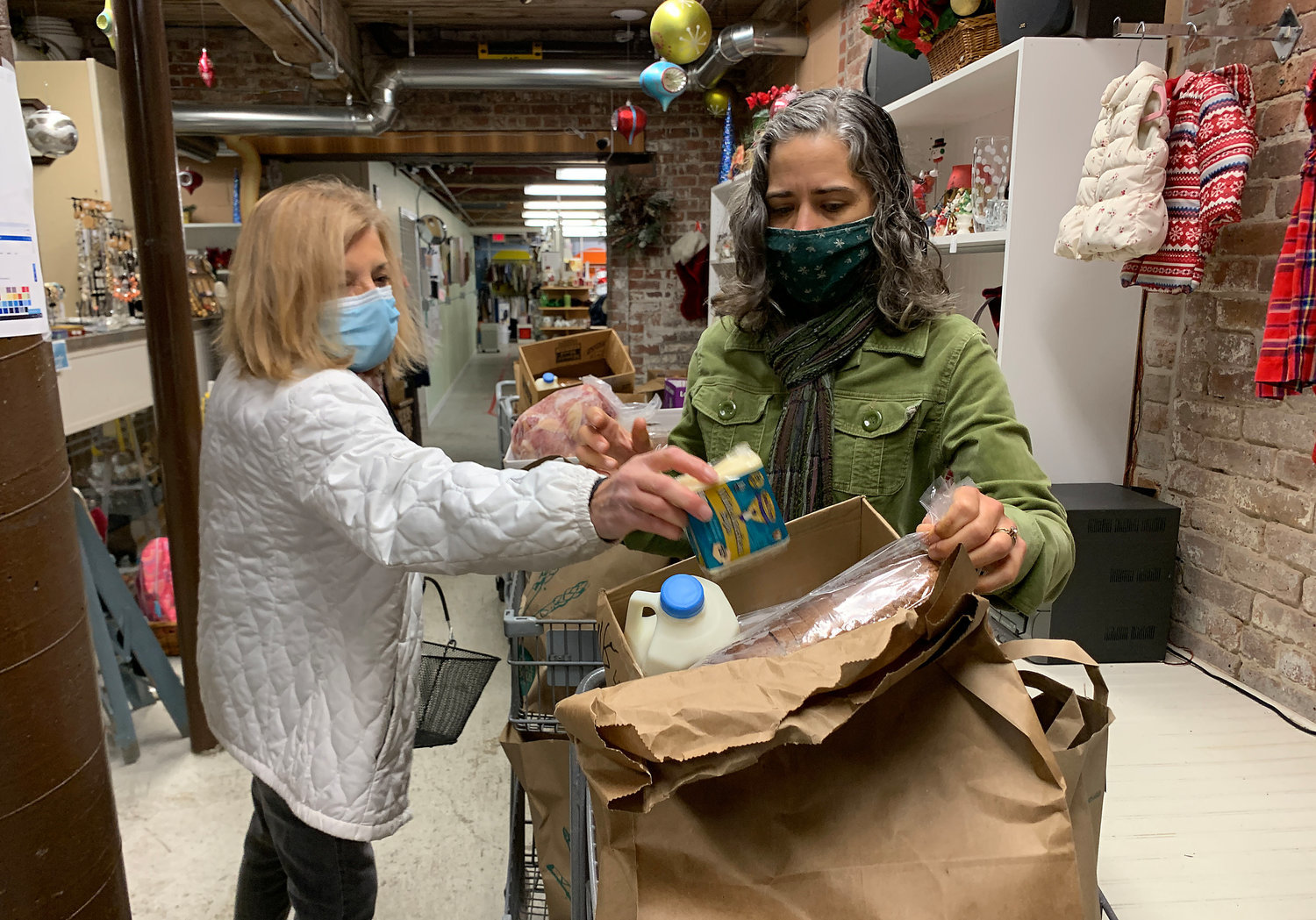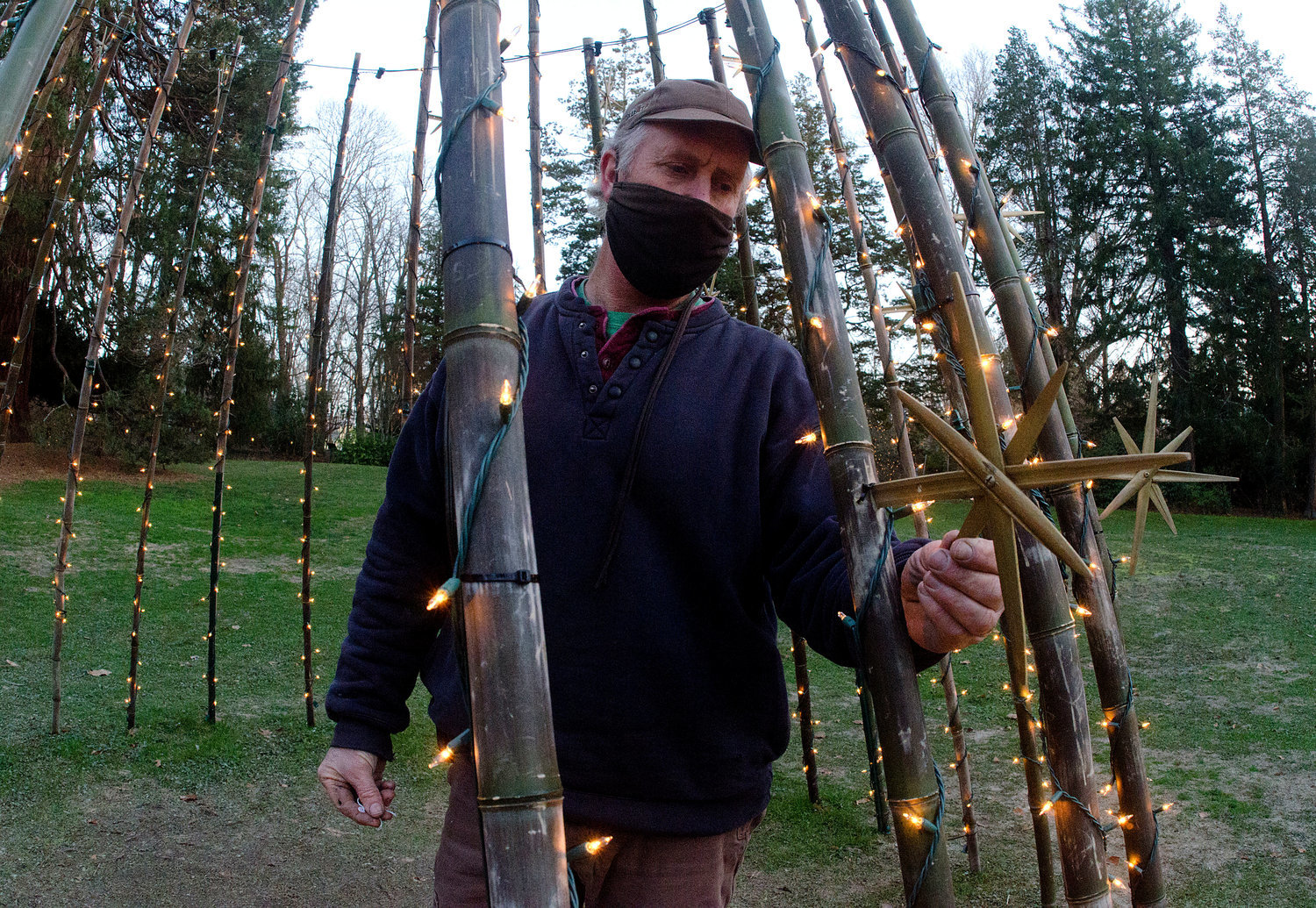Silver linings of Covid, as told by local nonprofit organizations
For many local nonprofit leaders, the downtime of the pandemic forced a reevaluation of priorities, goals and methods, and many find themselves emerging fundamentally changed. For better or worse, here are some of their stories.
This item is available in full to subscribers.
Please log in to continue |
Register to post eventsIf you'd like to post an event to our calendar, you can create a free account by clicking here. Note that free accounts do not have access to our subscriber-only content. |
Day pass subscribers
Are you a day pass subscriber who needs to log in? Click here to continue.
Silver linings of Covid, as told by local nonprofit organizations
This is Part One of a two-part series on how local nonprofits have weathered the storm of the COVID-19 pandemic.
It’s been bad, but it hasn’t been equally bad, or even entirely bad.
There’s no denying that the fallout from Covid has been felt especially hard by local nonprofits. Even as need grew, many longtime supporters found themselves less able to give; some organizations found themselves unable to raise money through their traditional channels such as events and venue rentals.
At the same time, Covid did not impact all of us equally. While the impact on the restaurant industry, for example, was clearly devastating, those in other, less impacted professions may have found their income secure, and themselves more eager than ever to contribute to the financial health of the nonprofits of their choice. For many local nonprofit leaders, the downtime of the pandemic forced a reevaluation of priorities, goals and methods, and many find themselves emerging fundamentally changed. For better or worse, here are some of their stories.
Linden Place
An opportunity for re-examination and reinterpretation
Though the shut down was hard on Linden Place, beginning with staff layoffs that resulted in the permanent loss of one position, a lot of good seems to have come out of the forced downtime for the 30-year-old organization that manages and maintains the over-200-year-old mansion and museum in downtown Bristol.
“Closing our doors allowed many organizations, Linden Place very much included, to take the foot off the throttle and actually think about our goals, mission strengths, and weaknesses in a way that can get a bit lost in the business of our usual work schedules and duties,” said Executive Director Susan Battle. “Museums are usually small organizations with small staff who wear many hats, you really get so caught up in the day-to-day that you rarely have time to strategically think about your goals, what you are doing well or not well, and where you want to be as an organization…The pandemic gave the Linden Place board, staff and volunteers to reflect on this and bring about comprehensive changes.”
While many institutions lost volunteers due to the pandemic, Linden Place actually grew their base.
“We found that we could host volunteers in a safe environment and that people wanted and needed outlets and activities to get them through the shut down of so much during the pandemic,” said Battle.
Covid relief funds and grants, such as the Take it Outside grant, enabled Linden Place to host new events in new ways. “We had to think outside the box. Virtual tours, virtual concerts, outdoor events, even in the middle of winter….these were all things that seemed out of reach before the pandemic. But when you are put into a difficult situation, you figure it out.”
Re-examination and reinterpretation of Linden Place’s tour was another huge undertaking tackled by staff and volunteers during the pandemic. With the museum temporarily closed, they were able to take the time and bring in a group of volunteer researchers and put together a completely updated, inclusive tour.
“This project was long overdue and in the throes of a usual busy year it likely would have gotten pushed off,” said Battle. “The pandemic allowed us the time to really look inwards and have better insight about the stories we want to tell and how we want to tell them.”
“An amazing, dedicated board and volunteer base came up with imaginative, innovative ways to keep connecting and it really has paid off with broader support than ever from the community.”
Blithewold
Stable and smarter, though contending with loss
Sadly, Blithewold’s volunteer community experienced the loss of one of their own due to Covid.
“Many of our volunteers were forced to isolate at home for months on end, and staff experienced financial upheaval and worry,” said Executive Director Karen Binder. “Those are the incalculable effects of this pandemic.”
The cancellations of weddings (representing 40 percent of Blithewold's annual revenue) in 2020 was financially devastating and resulted in Blithewold having to temporarily reduce the hours of many administrative staff after their PPP money was exhausted. Binder reports that the gardens and arboretum did see increased visitation once they reopened in mid-May of 2020 and that trend continued through 2021. By November 2020, most of their staff was back to their normal hours.
“Throughout the pandemic we adjusted our programs and operations to try and serve the community which seemed to really need a place of beauty and a place to gather with others,” said Binder. “We realized there was a significant demand for friends and family to sit and enjoy simple things like tea and scone on the porches.”
Those types of events will continue going forward into 2022. Blithewold also invested in more technology to reduce person to person contact with admissions, concerts and educational programs, offering as much as possible, even while the mansion itself remained closed to the public for more than 18 months. According to Binder, another round of PPP funding and the return of weddings helped stabilize Blithewold’s finances.
They have continued to see strong demand for outdoor experiences, and in January they launched outdoor fire pit programs, which are selling out. They are also now offering hybrid Zoom/in-person horticultural classes, which allow a certain number of people in person, with overflow on Zoom.
“We never would have thought to do hybrid programs if the pandemic did not hit us, so we are serving more people in creative ways, and that's a good thing,” said Binder. “We have come out of the pandemic financially stable, a bit smarter as to how and what we offer our members and the public, but I think we must continue to reflect and remember that there has been significant loss experienced.”
East Bay Food Pantry
Volunteerism, generosity, and creativity expanded programs
“The pandemic has had huge impacts on the East Bay Food Pantry and Thrift Shop,” said Executive Director Karen Griffith. “Many of the tough parts have been issues that I'm sure have impacted many nonprofits and for profit businesses alike, including retail closures, modifying how we operate, and stress caused by staff and volunteers being out due to illness or quarantine."
Griffith also reports that there have been many heartwarming impacts that have come out of the challenging past two years.
“It was incredible to see how many volunteers kept working despite the risk, because they believed so strongly in the importance of our work,” she said. “And many, many new people have stepped up and offered their help. Our donors have also stepped up like never before to support us financially. Their generosity has been incredible and has given us the resources to modify and expand our food programs to better serve the needs of our community.”
The pandemic has also forced the Bristol-based group, which serves the entire East Bay community from East Providence to Newport and Little Compton, to be more creative about how they distribute food. Many of those changes have ended up resulting in new or expanded services that they plan to continue long-term. They have developed an online order form so people can order their food in advance, and have volunteers pack it for them.
The pandemic has also increased the number of grocery deliveries they do. With more people dealing with illness or quarantine, isolated in their homes, their Mobile Pantry program is now doing about 2.5 times as many grocery deliveries as they were two years ago.
“The pandemic also caused us to work more closely with our community partners in order to assess and address community needs,” said Griffith. For example, working more closely with the schools resulted in a pilot program with Hugh Cole School last spring to take food to families who were unable to get to the Food Pantry. They have continued this program during the current school year.
“With the challenges of the pandemic, we have put a much greater emphasis on flexibility and accessibility, and I think it will have long-term benefits for those we serve,” said Griffith.
Bristol Warren Education Foundation
The emergence of more sustainable funding model
As the pandemic emerged in 2020, of all local nonprofits, BWEF was the proverbial canary in the coal mine, with their signature fundraiser, the Bodacious Bee, a spelling bee for adults, scheduled for the second weekend of March.
“We were definitely on the leading edge of canceling things in 2020, no question,” said Board Chair Darcy DaCosta.
The Bee was their biggest fundraiser, and the Medical Associates of Rhode Island (MARI) is a key partner and sponsor. In the days before that event, as Covid cases began to emerge on our shores, it was soon clear that they could not hold a gathering that included hundreds of community members (including many of our teachers and physicians) in one space. “Can you imagine what might have happened? We had to cancel,” said DaCosta.
With the loss of their primary source of revenue, BWEF pivoted, developing a sustaining sponsorship model, approaching their biggest local corporate supporters.
“MARI, People’s credit union, Water Rower, they all became sustaining sponsors with no expectation of anything,” said DaCosta. “They all stepped up.”
That is not to say that BWEF will not be holding their fun events moving forward. For this year, they are planning something they are calling “The Bee Presents,” to be held outside at Hope & Main in May. “It will be like recess for grownups — brown bag, hot lunch, hopscotch — an opportunity to thank everyone and have some fun,” said DaCosta.
In addition to their new, more sustainable funding model, they have developed a new grants class, the “Just in Time” program.
“These are under $2,000 ideas for right now, with a mini app, mini review, and a quick turnaround,” said DaCosta. In response to Covid, grantees include projects like new nature trail behind Hugh Cole for outdoor education, and individual math kits for when sharing is not recommended. BWEF awarded about a half dozen of those this year.
A combination of less requests during the shutdown and rollover of past grants has given BWEF a little breathing room. “For once, we are fundraising for the next year, not this year’s grant cycle,” said DaCosta.
DaCosta credits a great board for keeping BWEF going.
“Right away we decided Covid was not going to be a reason to say no, so some grantees got extra time to complete their plans,” she said. “A smaller grants class, a new grants class… we pivoted and moved forward. So we are here for our teachers when they can bring their great ideas to life. There’s a light at the end of the tunnel and we are ready to roll.”









